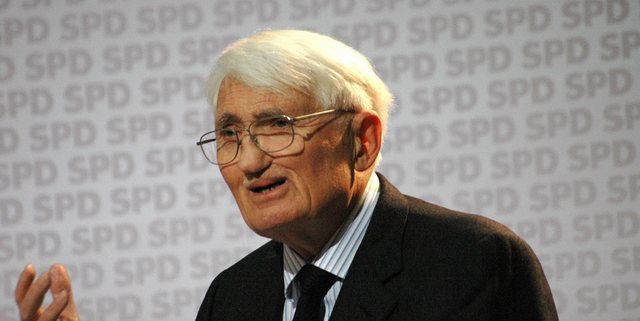
From a philosophical point of view, I am very impressed by the fact that the pandemic is forcing everyone to reflect on what only experts did before. Today all citizens are learning how their governments should make decisions, knowing well the limits of the knowledge of the virologists themselves with whom they consult. Rarely has the terrain of action in conditions of insecurity been so brightly lit. Perhaps this unusual experience will leave a mark on the conscience of public life.
But what are the ethical challenges?
I see above all two possible cases that violate the inviolability of human dignity, which the German Constitution guarantees in its preamble and declares in the second article which states that "Every person has the right to life and physical integrity." The first has to do with the so-called triage, the second with choosing the right moment to stop social distancing. The risk of overcrowding of intensive care units in hospitals, which were observed in Italy and which are feared in my country, reminds you of the medical scenarios in disasters that usually occur only during wars. If the number of hospitalized patients is higher than that of the health care facilities available in the intensive care unit, doctors will inevitably have to make a tragic decision because it is immoral in any case. Hence the temptation to abandon the principle of equality of treatment of every citizen, regardless of status, origin, age, etc., and in our case, to favor young people over the elderly. This can be demanded of the elderly themselves, in a morally admirable act of altruism. But which doctor would "weigh" the "value" of one man against the "value" of another, thus becoming the god of life and death?
The language of values derived from economics pushes towards "objective quantification" that depends on the observer's perspective. But this perspective cannot be the way to treat people's autonomy: when addressing a second person (you, you), the other person's self-determination must either be respected or denied, that is, either accepted or ignored. Professional medical ethics is in line with the Constitution and follows the principle that one human life cannot be put in front of another. In fact, it provides that, in cases where he is forced to make tragic decisions, the physician should be judged exclusively by health provisions relating to the greater chances of success of clinical treatment.
And the other case?
The right decision at the right time to end isolation - a measure morally and legally required for the protection of life - may conflict, for example, with the value of benefits. Politicians must resist "utilitarian temptation" to weigh the economic or social damage on the one hand, and the deaths that can be avoided, on the other. Should the risk of overloading the health care system be accepted, and as a result the mortality rate increase, in order to move the economy back as soon as possible and thus reduce the social misery caused by the economic crisis? At this point, the specific recommendation of the German Ethics Council has remained fatally unclear. Fundamental rights prohibit state bodies from making any decision to accept the possibility of the death of even a single person.
Isn't there a danger that this state of emergency will be transformed into a "democratic" rule?
Of course, restricting a large number of important freedoms should remain a strictly isolated exception. But this exception is in itself, as I said, required by the primary right to the protection of life and physical integrity. In France and Germany there is no reason to question the loyalty to the Constitution by those in power. If Viktor Orban grabs the Covid19 crisis as a chance to finally shut up the opposition, this must be explained by the long authoritarian journey of the Hungarian regime, which the European Council and, above all, the Christian Democrats in Europe have cherished.
What does the EU need, if at the time of Koronavirus, it does not demonstrate that Europeans are together and fighting for a common future? So you wrote in a collective appeal in Die Zeit, on April 2nd.
My friends and I raised this question for our government: we addressed it to the Chancellor and the Minister of Finance of the SPD. Both have left me stunned. They continue to stubbornly adhere to the management of the crisis in favor of Germany and the northern countries, without thinking about the criticism of the southern countries. Most German politicians fear the angry reaction of German voters if they surrender. There are empirical data that show how our government, with this nationalism, has "asked very little" of its population. If Macron has made a mistake in his relations with Germany, it has been the underestimation of the toughness of Angela Merkel's nationalist tendencies, which has other qualities.
What new narrative should Europeans create to resurrect in flight a European union that they never wanted and never coordinated?
The arguments and beautiful words are not against dissatisfaction. All that is needed is the ability to face and solve problems together, on the strong core of the continent, which is Germany and France. Only in such a "ring" would it be realistic to fight for the suppression of a world policy dominated by neoliberalism. Today we are realizing that when the need arises, only the state can help us.
Interview of German philosopher Jürgen Habermas, given to Nicolas Truong for Le Monde / Bota.al





